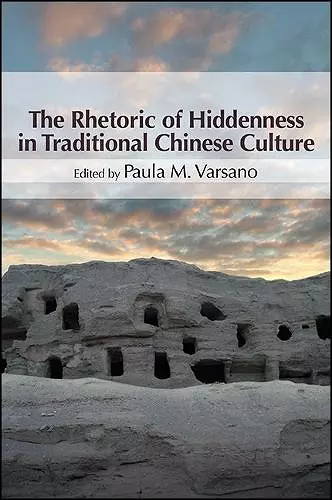The Rhetoric of Hiddenness in Traditional Chinese Culture
Format:Hardback
Publisher:State University of New York Press
Published:30th Dec '16
Should be back in stock very soon

Considers the role of hiddenness in the history of cultural production in premodern China.
This volume brings together fourteen essays that explore the role of hiddenness-as both an object and a mode of representation-in the history of cultural production in China from the Warring States Period (403–221 BCE) to the end of the Qing Dynasty (1911) and beyond. The rhetorical use of various forms of hiddenness makes its appearance in literary, political, philosophical, and religious writings, as well as in the visual arts. Working in fields as disparate as traditional Chinese literature, religion, philosophy, history, medicine, and art, the contributors attempt to characterize one of the fundamental signifying practices in traditional Chinese cultural production. In the process, they not only reveal otherwise obscure patterns connecting longstanding social, political, aesthetic, and epistemological practices, but also contribute to ongoing discussions-well beyond the field of China studies-regarding the representation and communicability of knowledge, as well as the practices controlling its dissemination.
"Each essay in the volume is dense in significance although relatively short; all are richly footnoted. Each one subtly traces the nuances of its subject; all are worthy of careful consideration. And yet, especially under Paula Varsano's guidance in how to read it, the volume becomes significantly more than the sum of its parts … From every perspective, this is an excellent collection, as important for the questions it suggests as for the insights it provides." — Chinese Literature: Essays, Articles, Reviews
ISBN: 9781438463032
Dimensions: unknown
Weight: 771g
400 pages